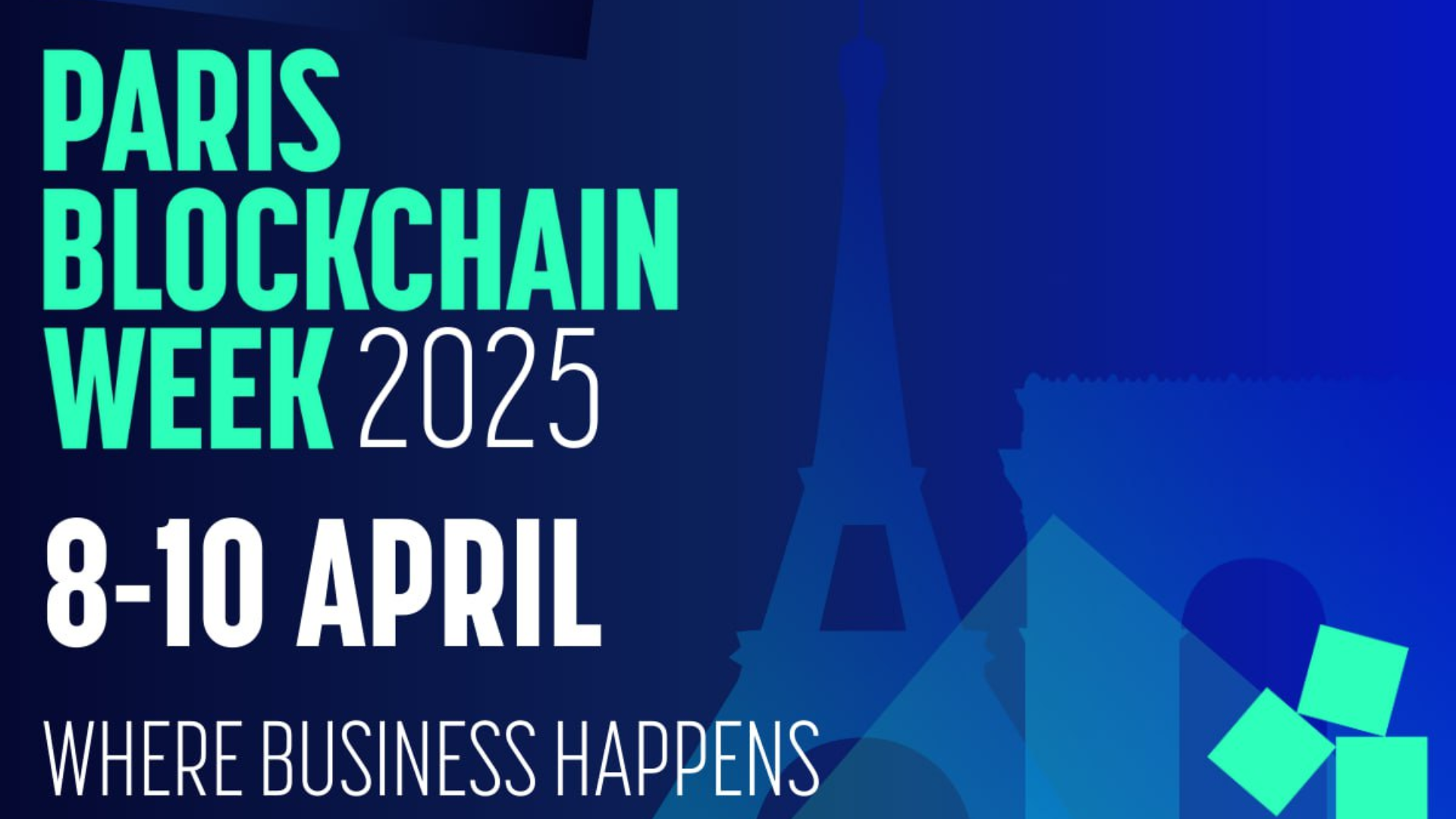
How Web3 Development is Transforming Remote Work Dynamics
11th November, 2024 12 mins
Web3 is gaining momentum as a transformative force across industries. Built on blockchain technology, it’s creating a decentralised framework that allows companies to form global teams capable of working seamlessly from anywhere. This emerging technology is rethinking how we manage remote and hybrid work, offering new levels of ownership, control, and transparency.
As remote and hybrid work continues to explode, more businesses are embracing the work-from-anywhere model. Web3 is stepping in to provide innovative remote work solutions. Its decentralised structure enables Web3 developers to create tools that enhance global teams' communication, security, and collaboration. From Web3 security measures to advanced Web3 development services, this technology offers new ways to tackle the challenges of remote work.
In this guide, we explore how Web3 technology is revolutionising remote work. We look at four key ways Web3 development provides practical solutions to challenges in global collaboration and workflow efficiency.
4 Ways Web3 is Revolutionising Remote Work and Global Teams
Securing the best talent for your organisation often requires reaching beyond local limits and tapping into diverse, global teams. As technology continues to advance, the significance of these teams is only growing. With bright minds from different backgrounds collaborating, companies can innovate more effectively, leading to the development of more robust and inclusive technology solutions.
However, traditional, centralised technologies present serious challenges. Whether it’s navigating time zones, managing international payments, or accessing tools securely across borders, the current systems aren’t always up to the task.
Remote and hybrid work, once sparked by the global pandemic, has now solidified as a permanent feature of modern business. More companies are adopting the work-from-anywhere model, giving them greater access to international teams and expanding the talent pool. Web3 development offers solutions that make this shift even smoother and more secure.
At its core, Web3 is fundamentally different from its predecessor, Web2. While Web2 centralised control with platforms and intermediaries, Web3 decentralised power, giving users ownership over their data and interactions. Ethereum, Solana, and other blockchain networks aren’t just examples of Web3 tech—they form the backbone of a more open and transparent internet.
In fact, 88% of Web3 developers already work remotely, showcasing how this new era of technology is naturally aligned with the demands of a remote-first workforce. While the debate over in-office vs remote work may continue, Web3’s innovations offer undeniable solutions to many challenges businesses face in managing remote teams.
At its current pace, however, remote work still encounters familiar hurdles:
- Centralised control that restricts access to essential platforms.
- Intermediaries like banks taking cuts or imposing fees on international payments add complexity and cost for global teams.
- Limited access to financial systems leaves some regions without the means to join a global economic network.
- There is an ongoing threat of data breaches as Web2 platforms continue to collect and store user data without full consent, leaving businesses and individuals vulnerable.
These issues can slow progress for businesses that want to build a flexible and resilient remote team. However, with Web3 powering the future of work, the potential for collaboration across borders—and the diverse perspectives it brings—can truly redefine how we operate. Let’s look at four ways this is happening.
1. Borderless Workforces: Breaking Down Geographical Barriers
In industries like developing tech and finance that thrive on diversity, remote working is becoming a standard. Yet, a common issue in this shift is remote hiring. Geographic restrictions in traditional hiring platforms often hinder companies from accessing a vast talent pool. Web3 technology addresses these challenges, enabling businesses to discover candidates who might fit their roles perfectly.
With Web3 development, decentralised job boards are changing the game. These platforms can reach a global audience, making it easier for companies to connect with talent from around the world. This accessibility opens doors for candidates who might not have had the opportunity to apply through conventional means.
Here’s how Web3 enhances remote hiring:
- Decentralised Job Boards: Web3-based job boards expand the reach of job listings, allowing businesses to tap into diverse talent pools. Companies can discover skilled professionals in various regions, making finding the right fit for tech roles easier.
- Diverse Skill Sets: The unique nature of decentralised platforms attracts a wide range of candidates with different experiences and backgrounds. This diversity enriches the talent pool, providing tech companies with innovative perspectives and skill sets that can drive projects forward.
- Transparent and Verifiable Credentials: Blockchain technology enables the creation of verifiable credentials that showcase candidates' skills and experiences. This system reduces reliance on traditional resumes and significantly minimises the risk of fraud, ensuring that businesses can trust their candidates' qualifications.
- Global Recognition: With blockchain-based credentials, qualifications are recognised globally. This uniformity simplifies the assessment of candidates, allowing businesses to evaluate talent from different locations without the confusion of varying standards.
- Specialised Communities: Web3 supports specialised communities where developers and tech professionals can connect and showcase their skills. These networks help businesses discover niche talent that may not be easily found in traditional job markets, creating opportunities for innovative collaboration.
Web3 transforms the hiring process by breaking down barriers and introducing a more efficient and transparent approach. By utilising these technologies, companies can build diverse, dynamic teams that are ready to tackle the challenges of a global market.
2. Smart Contracts: Redefining Trust and Accountability
We’ve already discussed how Web3 development is enabling borderless connections, but the real challenge for businesses hiring remote and global teams—especially in tech—lies in verifying skills and credentials. When companies are looking to harness the world’s brightest minds, they need a system that guarantees trust and accountability without jumping through hoops. That’s where Web3 and smart contracts come into play.
At the core of Web3 is decentralisation. Instead of relying on centralised platforms or intermediaries that often delay the hiring process, Web3 uses blockchain to create transparent and self-executing agreements—smart contracts. These contracts are coded directly into the blockchain, meaning the terms of employment (like project milestones, payments, or deliverables) automatically execute when conditions are met. There are no third parties, no delays, and everything is verifiable and secure.
Proving a candidate's expertise can be a logistical nightmare for businesses building remote or hybrid teams, especially when hiring for technical roles. Traditional methods—like background checks or credential verifications—are slow, often fragmented, and heavily reliant on trust.
With Web3, this process is streamlined through blockchain-powered solutions like decentralised identities (DIDs) and verifiable credentials. These tools allow professionals to store and share tamper-proof records of their qualifications, certifications, and work history, all backed by blockchain technology.
Here’s where it really starts to get attractive for companies:
Automated Contracts
Smart contracts allow companies to set clear expectations upfront. For instance, if a Web3 developer completes a milestone on a project, the contract automatically executes the agreed-upon payment—no more chasing invoices or following up on deliverables.
Verified Credentials
Using blockchain technology, credentials are stored as verifiable, secure records. Employers no longer need to worry about falsified claims or fake resumes. They can instantly verify the candidates' experience or certifications, making hiring the right talent for Web3 jobs easier.
Decentralised Identities (DIDs)
DIDs give individuals control over their digital identities, enabling them to showcase their skills securely and efficiently, verifiable by potential employers. This removes much of the uncertainty businesses face when hiring across borders and makes building global teams far more efficient.
Web3 technology not only solves the pain points of skill verification but also brings in a layer of security and transparency that traditional systems can’t match. In a world where remote work is the norm and companies that allow you to work from anywhere are becoming the standard, having access to this type of trustless system is a huge advantage.
3. Crypto Payrolls: Simplifying Global Payments
Building global teams used to be a logistical challenge, especially when it came to paying employees across borders. Traditional banking systems, built on Web2 technology, come with frustrating barriers that make managing international payrolls difficult for companies.
High transaction fees, currency conversion issues, long processing times, and limited accessibility in certain countries make scaling remote teams difficult. In response, Web3 technology is transforming how businesses handle global payments, revolutionising the way companies manage global teams and enabling an actual “work from anywhere” reality.
Web3 Technology: Fast, Secure, and Cost-Effective
Web3 technology, powered by decentralised systems, eliminates the intermediaries and inefficiencies of traditional banking. With crypto payrolls, companies can pay employees across borders instantly, securely, and at a fraction of the cost.
Whether your team members are in the US, Europe, or Argentina, payments happen in real time without banks or payment platforms. This is especially important for global teams that work remotely and need fast, seamless transactions.
- Instant payments: No more delays in cross-border transfers—crypto payments are nearly instant.
- Lower fees: With no intermediaries, transaction and conversion fees are reduced.
- Global access: Employees in regions with limited banking options can receive payments in crypto, ensuring greater financial inclusion.
Platforms like Bitwage and Nium are leading the charge, offering secure crypto payroll services that align with the flexibility of hybrid work and global teams.
This revolution in payroll is making it easier for companies to tap into global talent, streamline payments, and support the growing demand for Web3 jobs and remote work solutions.
Web3 isn't just improving payroll—it's reshaping the way businesses build and manage international teams, ensuring they can work from anywhere and get paid from anywhere.
 4. Remote-First Collaboration Tools Built on Web3
4. Remote-First Collaboration Tools Built on Web3
Accessing global talent and verifying credentials opens up exciting possibilities. But to fully harness this potential, remote teams need effective collaboration tools. Traditional platforms like Slack and Google Drive have their merits, but they come with limitations that can disrupt productivity.
Web3 technology is changing the game for remote teams. By utilising decentralised platforms, data is distributed across multiple nodes, eliminating the risk of outages or downtime. This means that global teams can work without interruption, whether they’re in different countries or time zones.
Transparency is a core advantage. With Web3 tools, all team members can access project tasks and decisions in real-time. This visibility reduces misunderstandings and keeps everyone aligned, ensuring that contributions don’t go unnoticed.
Here are some key benefits that Web3 development brings to remote collaboration:
- Decentralised Infrastructure: No single point of failure means more reliable access and functionality.
- Ownership and Control: Users maintain full control over their data, enhancing privacy and security while minimising reliance on third-party providers.
- Language and Cultural Tools: Automated translation features enable teams to communicate seamlessly, breaking down language barriers.
- NFT-Based Contributions: Team members can mint their work as NFTs, providing verifiable proof of ownership and recognition.
- Immutable Records: Blockchain offers a permanent, tamper-proof record of tasks and decisions, boosting trust and clarity within the team.
- Secure Document Sharing: Platforms like Storj and Filecoin allow for safe and efficient file sharing, reducing the risks associated with centralised systems.
Web3 is revolutionising how remote global teams collaborate. By enhancing reliability, transparency, ownership, and inclusivity, these tools empower teams to connect and work together seamlessly. With Web3 technology, teams can embrace a remote work solution that supports their goals in a hybrid work environment.
The Opportunities and Challenges of Web3 Remote Teams
Web3 offers the answer to many current issues with building successful remote teams through remote work—but that’s not all. Web3 is transforming how we think about remote work and global teams by offering decentralised, transparent, and secure solutions. While this shift brings exciting opportunities, it also presents a set of unique challenges. Let’s break down both.
Future Opportunities
Web3 presents exciting future opportunities for companies embracing remote and global working. Here’s a closer look at how this technology can reshape the way businesses operate:
- Streamlined Operations: Web3's decentralised nature allows for more efficient workflows. Companies can reduce costs and increase productivity by eliminating the need for intermediaries. This means global teams can collaborate more effectively, simplifying project management and tracking progress.
- Enhanced Flexibility: The shift towards hybrid work is here to stay, and Web3 development supports this by offering flexible solutions tailored to different work styles. Companies that adopt this technology can create environments where employees have the autonomy to choose how and where they work, ultimately boosting morale and job satisfaction.
- Increased Innovation: With access to diverse talent pools, businesses can harness a variety of perspectives and ideas. Web3 encourages collaboration among remote workers from different backgrounds, supporting a culture of innovation that can lead to creative solutions and groundbreaking products.
- Robust Security Measures: As cyber threats continue to evolve, Web3's emphasis on security becomes increasingly valuable. The use of blockchain technology means that sensitive information can be better protected, helping companies maintain compliance with data privacy regulations and building trust among clients and employees.
- Global Market Access: Using Web3, businesses can seamlessly enter new markets without the barriers typically associated with international transactions. Instant global payments and transparent contracts allow companies to operate more freely and adapt quickly to changes in the marketplace.
Current Challenges
While Web3 presents numerous opportunities, it’s important to address the challenges that come with this shift. Here are some key considerations for companies:
- Cultural Coordination: Managing global teams requires navigating different time zones and cultural norms. Effective communication strategies are vital to keeping everyone aligned. Building a strong team culture that embraces diversity is essential for successful collaboration.
- Transitioning Technology: Adopting Web3 collaboration tools can present a steep learning curve for teams accustomed to platforms like Zoom and Google Drive. Transitioning to blockchain-based solutions requires time and training, potentially disrupting established workflows. Companies must invest in onboarding to facilitate smooth transitions.
- Regulatory Compliance: The legal environment surrounding Web3 development is still evolving. Companies must remain informed about tax regulations, data privacy laws, and ownership rights that differ by country. This knowledge is critical to avoiding legal disputes while operating internationally.
- Cryptocurrency Risks: Many businesses are exploring cryptocurrency for payments, but its volatility can pose challenges. Not all employees may be comfortable accepting crypto as compensation, as some prefer the stability of traditional incomes. Offering flexible payment options can help attract and retain skilled individuals.
- Access to Technology: Not all team members may have the necessary tech or internet access to fully engage with Web3 platforms. Companies must ensure everyone can participate equally in a decentralised work environment, regardless of location.
As we move forward in this new hybrid and remote work era, Web3 offers incredible potential for companies willing to embrace change. By recognising both the opportunities and challenges, businesses can effectively utilise Web3 technology to build strong, successful global teams.
Closing Insights: Embracing Web3 Development Together
Web3 development is reshaping how we collaborate, allowing global teams to work from anywhere without losing momentum. The ability to tap into talent worldwide and operate seamlessly across borders is quickly becoming the norm, not just a forward-thinking option.
As businesses embrace this shift, those who act now will have a significant advantage, opening doors to innovation and growth that were previously out of reach. By focusing on remote teams and utilising Web3 technologies, companies can access a global talent pool and benefit from diverse perspectives in their projects.
We’re at a pivotal moment where the nature of work is transforming. Web3 is enhancing collaboration and transparency among teams, enabling everyone to contribute meaningfully. Investing in Web3 development equips organisations to be more resilient and positioned for success in the future.
Are you Ready to Unleash the Capabilities of Web3?
At Understanding Recruitment, we’re passionate about developing innovative technologies and providing tailored talent solutions to help you build a team destined for greatness in Web3 development. With over 90 specialist tech recruiters, we have a proven track record of delivering exceptional candidates in the Web3, blockchain, and crypto sectors.
Reach out to us today to discover why we have an outstanding reputation in the industry and how we can support your business goals.



